Healthy Hair Growth and Nutrition
Healthy hair growth depends on a well-rounded diet, much like the rest of your body. The cells that support strong, vibrant hair rely on a steady stream of key nutrients. From the follicles to the tips, your hair undergoes a continuous cycle of growth, rest, and renewal. However, when this cycle is disrupted due to poor nutrition, the results can be weakened strands, reduced growth rate, and increased hair loss.
The Building Blocks of Hair Health
At the heart of hair health are proteins, particularly keratin, which make up the majority of your hair’s structure. A diet lacking in high-quality protein can lead to weaker hair strands and slowed growth. To prevent this, focus on incorporating lean meats, fish, poultry, eggs, and vegetarian sources such as beans and legumes into your meals.
Biotin: The Hair Growth B Vitamin
Biotin, a B vitamin widely associated with hair growth, serves as a coenzyme for several metabolic reactions, including the production of amino acids – the building blocks of protein. While biotin deficiencies are rare, ensuring you receive enough through foods like eggs, nuts, seeds, and sweet potatoes can support your hair’s needs.
Iron: Oxygenating Your Follicles
Iron plays a critical role in hair health by helping red blood cells carry oxygen to your cells, including hair follicles. Hair loss can often be attributed to iron deficiency, particularly in women. To bolster your iron levels, include red meat, poultry, fish, lentils, spinach, and iron-fortified cereals in your diet.
Omega-3 Fatty Acids: Nourishment from Within
Omega-3 fatty acids are essential for hair growth. They are found in the cells that line the scalp and also provide oils that keep your scalp and hair hydrated. Foods rich in omega-3 include flaxseeds, walnuts, salmon, mackerel, and avocados.
Vitamins A and C: Supporting Collagen and Sebum Production
Vitamin A is necessary for cell growth, including hair cells. It also assists in the production of sebum, which moisturizes the scalp and keeps hair healthy. Carrots, sweet potatoes, pumpkins, spinach, and kale are great sources of beta-carotene, which converts to vitamin A in the body.
Vitamin C is a powerful antioxidant that helps protect against the oxidative stress caused by free radicals. Moreover, it aids in the production of collagen, a protein that strengthens hair. To get your daily dose, include citrus fruits, strawberries, bell peppers, and Brussels sprouts in your diet.
The Impact of Fad Diets and Nutritional Deficiencies
Fad diets that drastically cut calories or exclude entire food groups can result in nutrient deficiencies that impact hair health. Paying attention to the balance and variety in your diet is crucial to avoid such deficiencies. If you’re considering a new diet, it may be wise to consult with a healthcare professional to ensure your nutritional needs are met.
Incorporating Nutrient-Rich Foods for Optimal Hair Care
To support your hair health through nutrition, aim for a balanced diet that includes a variety of fruits, vegetables, whole grains, unsaturated fats, lean proteins, and dairy or dairy alternatives. Not only will this benefit your hair, but it will also contribute to your overall well-being.
For those already experiencing hair loss or thinning, a nutritious diet is an excellent complement to the hair restoration services provided by Charles Medical Group. Combining expert hair restoration techniques with proper nutrition can create a robust foundation for healthier, fuller hair.
In summary, your diet provides the nutrients needed for the growth and maintenance of strong, healthy hair. By understanding and applying the principles of good nutrition, you can optimize your hair health and complement the hair restoration treatments offered by Charles Medical Group. Whether you’re looking to prevent hair loss or enhance the results of your hair restoration procedure, a focus on nutrition can be a game-changer for achieving luscious locks.





